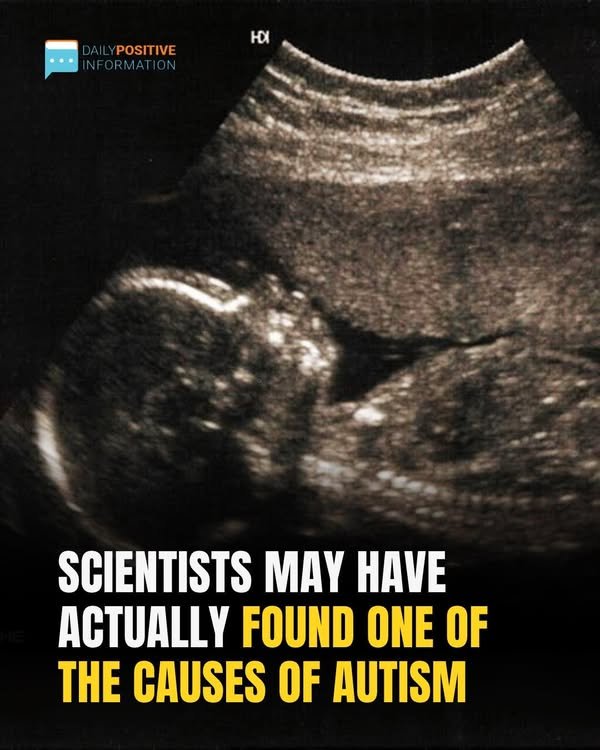Study Suggests Key Link That Could Help Explain Autism Development

Recent scientific discoveries continue to reveal the vast and complex role that gut microbiota—the trillions of bacteria, fungi, and other microorganisms residing in the human digestive system—play in influencing nearly every aspect of human health. Once thought to be simply passengers in our digestive tract, these microbes are now recognized as essential partners in maintaining the body’s delicate balance, regulating metabolism, immune responses, and even neurological functions. The gut microbiome’s influence extends far beyond digestion, impacting areas as diverse as mental health disorders, autoimmune diseases, and, most intriguingly, neurodevelopmental conditions such as autism spectrum disorder (ASD).
A groundbreaking study recently published in The Journal of Immunology has taken this understanding a step further by exploring how the gut microbiota of mothers may have a profound effect on the risk of autism in their offspring. This research offers compelling evidence that the mother’s microbiome during pregnancy could play a far greater role in shaping neurodevelopmental outcomes than previously recognized, potentially eclipsing the influence of the child’s own gut bacteria after birth. This insight shifts the focus toward maternal health and immune function as critical factors in the earliest stages of brain development.
Autism spectrum disorder is a multifaceted condition affecting millions worldwide. Characterized by difficulties in social communication, repetitive behaviors, and sensory sensitivities, autism presents a broad range of symptoms and severities. Despite decades of research, the precise causes remain elusive, though experts agree that a combination of genetic predisposition and environmental factors contribute to its development. Among the environmental influences, the prenatal environment—specifically maternal health and immune status—has emerged as a vital area of study.
The recent study zeroes in on a molecule called interleukin-17a (IL-17a), a cytokine produced by the immune system. Cytokines act as signaling molecules, orchestrating immune responses and inflammation. IL-17a, in particular, is known for its role in promoting inflammatory reactions in autoimmune diseases such as psoriasis, multiple sclerosis, and rheumatoid arthritis. Its involvement in inflammatory pathways suggested to researchers that IL-17a might also influence the developing fetal brain during pregnancy, potentially contributing to neurodevelopmental disorders if dysregulated.
To test this theory, researchers conducted controlled experiments in mice, a common model for studying human disease processes due to genetic and physiological similarities. When pregnant mice had their IL-17a activity suppressed, their pups developed normal behavioral patterns, indicating healthy neurodevelopment. However, when mothers carried a particular composition of gut microbiota, their offspring later exhibited behaviors akin to those seen in human autism, including reduced social interactions and increased repetitive behaviors. This finding was crucial, suggesting that the mother’s gut microbiome could influence IL-17a production and thus impact the neurological development of her unborn child.
To explore this relationship further, the researchers performed fecal microbiota transplants—transferring gut bacteria from one group of mice to another. When fecal matter from mothers whose offspring developed autism-like traits was transplanted into other pregnant mice, those mice’s pups began to exhibit similar behavioral abnormalities. This compelling evidence established a causal link between maternal gut microbiota and autism-like behaviors, highlighting that the microbial environment within the mother’s gut has a powerful effect on fetal brain development.
While these findings are based on animal studies, which inherently have limitations when extrapolating to humans, they provide a critical foundation for future research. The implications are profound: they suggest that maintaining a healthy and balanced gut microbiome during pregnancy might be a key factor in reducing autism risk. Furthermore, they raise important questions about how maternal diet, antibiotic use, stress levels, and other lifestyle factors may influence gut bacteria and, consequently, neurodevelopmental outcomes.
In the coming years, scientists aim to identify the specific microbial species or metabolic products responsible for triggering changes in IL-17a levels and brain development. Pinpointing these key players could open the door to novel preventive strategies or therapeutic interventions. For instance, targeted probiotics, prebiotics, or dietary modifications during pregnancy could one day become part of personalized prenatal care aimed at optimizing maternal microbiota for healthy brain development.
Additionally, this research underscores the critical need for more comprehensive human studies that track maternal gut microbiota throughout pregnancy and correlate these findings with children’s developmental outcomes over time. Longitudinal studies involving pregnant women and their offspring could validate the animal model findings and help determine how best to support maternal gut health.
Beyond autism, the connection between the immune system, gut microbiota, and neurodevelopment may also shed light on other neuropsychiatric disorders such as schizophrenia, ADHD, and anxiety disorders. Understanding these complex interactions promises to transform not only how we understand the origins of these conditions but also how we might prevent or mitigate them through early intervention.
As we continue to unravel the intricate web linking the gut, immune system, and brain, one thing is clear: maternal health before and during pregnancy plays an indispensable role in shaping the future well-being of children. Ensuring that expectant mothers maintain a balanced, diverse, and robust gut microbiome could be one of the most impactful steps in nurturing the next generation’s mental and neurological health.
This pioneering research highlights an exciting new frontier in medicine—where microbiology, immunology, and neuroscience converge to redefine maternal and child health. The path forward will require collaboration across disciplines, investment in cutting-edge technologies, and a commitment to holistic prenatal care practices. But the potential rewards—a deeper understanding of autism, improved prevention methods, and healthier futures for countless children—are well worth the effort.
In conclusion, while the study in The Journal of Immunology offers a compelling glimpse into the powerful influence of maternal gut microbiota and IL-17a on autism development, it also opens the door to many questions and possibilities. As researchers continue this vital work, expectant mothers and healthcare providers alike may soon benefit from new knowledge that supports healthier pregnancies and brighter developmental outcomes for children worldwide.





